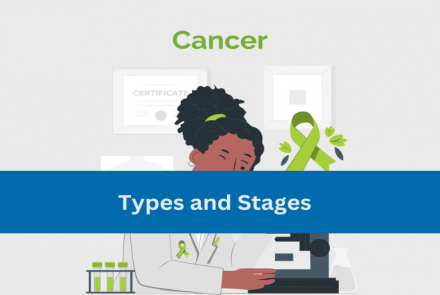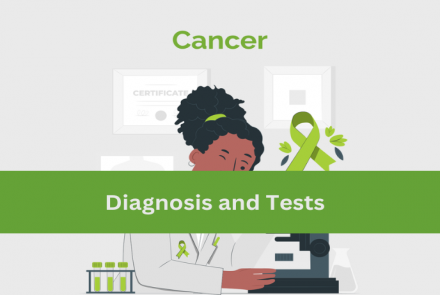
We have all had a cough in our life. While it is our body's natural reflex and a routine occurrence, a cough may signify more than a bodily function. It may be a powerful signal, an expression of our respiratory system trying to communicate with us. Whether the cough is fleeting, annoying, or persistent, it is a call for attention to the intricacies of our health. Through this article, we will decode everything about coughing and the significance it holds in the broader context of our health.
What is a Cough?
A cough is a spontaneous reflex of the body when any foreign body or irritant like mucus, microbes, or dust particles irritate your throat and airways. Your body automatically responds by coughing to try to expel those particles. It is just like other reflexes, like sneezing and blinking, and the function is to protect your airways (trachea, bronchi) and lungs.
What is a Normal Cough?
To maintain moisture in the airways, the respiratory system constantly generates a small amount of mucus, which forms a thin protective layer that acts as a barrier against irritants and pathogens that can be inhaled. Occasional coughing aids in the movement of mucus and does not cause harm to the body. Furthermore, coughing aids in the swift removal of any foreign particles that may have been inadvertently inhaled.The throat and airways are supplied with nerves that detect irritants and try to get rid of them by sending signals for a cough.
Types of Cough By Duration
- Acute cough: Usually appears suddenly and develops rapidly. Common causes are cold, flu, or sinus infection. It usually resolves in 2-3 weeks if not before.
- Subacute cough: It lasts for 3- 8 weeks.
- Chronic cough: It lasts for >8 weeks.
- Refractory cough: It is a chronic cough that has not responded to treatment.
Character of Cough
Dry cough including ticklish or pricking cough
- A non-productive cough(no phlegm is produced), also known as a dry cough, is caused by irritants in the air passages. Irritation in the throat is often the most bothersome type of cough since it produces minimal or no phlegm.
- A prickly or ticklish cough is also a type of dry cough. This is the most prevalent form of cough.
- Various factors can trigger it, such as colds, flu, hay fever, asthma, acid reflux, bronchitis.
- Some medications used to treat high blood pressure (e.g., Enalapril).
- Occasionally, individuals may experience a post-nasal drip, which occurs when inflamed nasal tissue generates excessive mucus that then drips down into the throat.This post-nasal drip triggers the cough reflex.
The primary culprits for this type of cough are typically colds, the flu, hay fever, or allergic rhinitis.
Wet or chesty cough:
- A chesty cough, also referred to as a wet or phlegmy cough, is characterized by a heavy feeling in the chest and the expulsion of mucus or phlegm during coughing.
- These types of coughs are known as productive coughs as each cough can bring up a clump of mucus.
- Viruses from colds and flu typically cause chesty coughs and sometimes a secondary bacterial infection and can occur after a sore throat.
- They tend to be worse in the mornings due to the buildup of mucus produced by cells in the air passages overnight.
- Other more serious causes of chesty coughs include asthma, heart failure, or chronic bronchitis.
Persistent cough
- A cough that lasts for more than eight weeks is referred to as a persistent cough.
- The most common reasons are allergic rhinitis, sinus infections, asthma, gastroesophageal reflux, eosinophilic bronchitis, smoking, infection, and medication side effects.
- Some of the rarer and serious causes are lung cancer, chest lymphomas, emphysema, sarcoidosis, and fungal infections including coccidiomycosis, histoplasmosis, and tuberculosis.
- It is important to seek medical attention if you have a cough that lasts longer than three weeks or if you experience other symptoms such as shortness of breath, chest pain, or coughing up blood.
- If you have pre-existing conditions such as asthma or Chronic Obstructive Airways Disease (COPD), it is also advisable to consult your doctor if your symptoms worsen or persist.
Anxious/nervous cough
- A nervous cough is what we call an anxious cough (also a dry cough) that is not triggered by physical irritants or the need to expel anything.
- Feelings of anxiety or stress exacerbate this type of cough and typically subside during sleep.
- Prior to diagnosing a nervous cough, a physician always rules out the other potential causes of cough .
Croup cough
- Croup cough is a condition that specifically affects children under the age of 5 years. It is caused by the same virus that causes the common cold, leading to inflammation of the airways. The initial symptoms of croup include a congested nose and a fever. As the voice box(larynx) and windpipe (trachea) become swollen and irritated, the air passage to the lungs becomes restricted, resulting in a distinctive hoarse cough resembling the sound made by a seal. If the swelling persists, it can make breathing more difficult, causing the child to produce a high-pitched squeaking sound known as stridor.
- These symptoms tend to worsen during the night and when the child is upset.
- If the child experiences rapid breathing, inward pulling of the skin under the ribs during breathing, or a bluish discoloration around the mouth, immediate medical attention should be sought.
Whooping cough
- It is called pertussis in medical terms. This is a severe respiratory infection that leads to intense bouts of coughing.
- As part of the vaccination program, a vaccine for whooping cough is typically administered. However, individuals who have not been immunized can still transmit the infection to those who have not yet received the vaccine, including infants.
- The distinctive 'whooping' sound is produced when the child gasps for air following a coughing episode. Although babies may not cough or produce the whooping sound, they may experience choking and gasping.
Choking
- It is a sudden episode of coughing while eating or in case of children if they accidentally try to swallow a small object. You should try the Heimlich maneuver to help dislodge the object or foreign body.
- In case the person appears to be turning blue or is unable to breathe, we should seek immediate medical attention.
Nocturnal (night) cough
- If your cough worsens or only appears at night while you are trying to sleep, it is important to bring this symptom to the attention of your doctor.
- While it may be a common symptom of a cold or flu, where mucus accumulates in the airways when you lie down.
- It could also indicate acid reflux. When you are lying down at night, the acidic contents of your stomach may flow back up into your esophagus, causing a cough.
- Furthermore, in cases of asthma, coughing tends to worsen not only during physical activity but also at night.
Cough in Elderly
1. Cough in elderly is of the same types and has the same causes as mentioned above.
2. A few things that help to minimize the hospitalization and complications like severe pneumonia and lower respiratory infections are:
- Getting annual flu shots. Best taken around Sep-Oct each year before the rampant flu season.
- Getting vaccinated with Pneumococcal vaccine. It can protect against the pneumococcal disease, which is any type of infection caused by Streptococcus pneumoniae bacteria. It requires 1-2 doses depending on the previous vaccination status. Speak to your doctor for the right vaccine for you.
3. Maintain respiratory health.
Read more about Adult immunisation here
How to Maintain Your Respiratory Health
1. Don’t smoke or vape. Lung cancer and chronic obstructive pulmonary disease (COPD), which includes emphysema and chronic bronchitis, are primarily caused by cigarette smoking. Breathing can become more difficult due to air channels being narrowed by cigarette smoke. It results in swelling of the lungs (lung edema) or chronic inflammation, which can progress to chronic bronchitis. Cigarette smoke damages lung tissue over time and may cause alterations that develop into cancer.
2. Maintain good indoor air quality. Secondhand smoke, chemicals are some things that may affect the air quality indoors.
3. Avoid outdoor (ambient) pollution.
4. Think about the following to shield your lungs from outside pollution:
- Avoid working out outside when the air quality is poor.
- Steer clear of areas with high traffic when you're exercising.
- Check out the daily air quality in your neighborhood.
- Avoid burning garbage.
5. Do regular exercise.
6. Get regular health checks.
7. For more information, see this.
Managing Cough Symptoms:
- If you have asthma or any other chronic lung disease, it is imperative to take your medications as advised by your doctor.
- To alleviate a dry, tickling cough, you may use sugar-free cough drops/lozenges (these should never be given to children under the age of 3 as they can pose a choking hazard).
- Use a vaporizer or take a steamy shower for steam inhalation as it can help increase moisture in the air and soothe a dry throat.
- Try using a humidifier to reduce dryness of the airway.
- Drink plenty of fluids, as that can also help thin the mucus in your throat, making it easier to cough it up.
- It is crucial to avoid smoking, secondhand smoke and vaping.
When to see a doctor
- Symptoms like leg swelling, or a cough that worsens while lying down may indicate heart failure. Especially if you have a preexisting heart disease.
- If you have been in contact with someone who has tuberculosis, it is important to be aware of any symptoms such as unintentional weight loss, night sweats or fever, as these could be signs of tuberculosis.
- If an infant younger than 3 months old has a persistent cough, it is advisable to seek medical attention.
- A cough that lasts longer than 10 to 14 days should not be ignored and should be evaluated by a healthcare professional.
- Coughing up blood is a concerning symptom that requires medical attention.
- If you have a fever, it may indicate a bacterial infection that may require antibiotics.
- If you have a high-pitched sound (stridor) or a whistling sound (wheeze) while breathing in, it should be evaluated by a healthcare professional.
- If you have a wet cough with thick, foul-smelling, yellowish-green phlegm, it could be a sign of a bacterial infection.
- A sudden and intense cough should be addressed promptly by a healthcare professional.
- If you have a reflux or acidity with a persistent cough seeing a gastroenterologist would make sense.
How is the cause of cough diagnosed by a doctor
In order to treat the cough, it is important to determine the underlying cause of the cough. Your healthcare provider will conduct a thorough examination to determine the cause.
- This will involve taking your medical history, performing a physical examination, and potentially ordering additional tests.
- During the examination, your provider will assess your vital signs, such as your body temperature and respiratory rate.
- They may also evaluate your oxygen levels, conduct a spirometry test, or request a chest X-ray or lung function tests if your cough has persisted for a significant period.
Questions your doctor may ask you:
- Your history of tobacco use, as well as vaping.
- The nature of your occupation- as exposure to some inhalational allergens (Coal miners, hard-rock miners, tunnel workers, concrete manufacturing workers or constant high or low pitch use of voice (teachers, singers)
- The duration of your cough to determine if it is acute, subacute, or chronic.
- Your breathing capacity at rest and during strenuous activity.
- Whether the cough disrupts your sleep.
- Any accompanying symptoms when you cough, such as phlegm or blood.
- Any medications you are currently taking.
- The presence of a persistent unpleasant taste in your mouth which may signify a reflux (Gastro-esophageal Reflux disease) sometimes.
- The existence of chronic bad breath which could indicate a reflux or sinusitis leading to a postnasal drip.
- The occurrence of any pain, particularly in your facial region which could indicate a sinus infection.
- If you have lost weight without trying may indicate a chronic disease of the lungs/airways.
REFERENCES:
- Association, American Lung. “Learn about Cough.” Www.lung.org, www.lung.org/lung-health-diseases/warning-signs-of-lung-disease/cough/l…. Accessed 5 Dec. 2023.
- “Cough.” Pennmedicine.org, 2022, www.pennmedicine.org/for-patients-and-visitors/patient-information/cond….
- Chung KF, Mazzone SB. Cough. In: Broaddus VC, King TE, Ernst JD, et al, eds. Murray and Nadel's Textbook of Respiratory Medicine. 7th ed. Philadelphia, PA: Elsevier; 2022:chap 37.
- Kraft M. Approach to the patient with respiratory disease. In: Goldman L, Schafer AI, eds. Goldman-Cecil Medicine. 26th ed. Philadelphia, PA: Elsevier; 2020:chap 77.
- “Cough” Nhsinform.scot, 2020, www.nhsinform.scot/illnesses-and-conditions/lungs-and-airways/cough/.
- Widdicombe, John, and Shankar Kamath. “Acute Cough in the Elderly.” Drugs & Aging, vol. 21, no. 4, 2004, pp. 243–258, pubmed.ncbi.nlm.nih.gov/15012170/, https://doi.org/10.2165/00002512-200421040-00003. Accessed 13 Oct. 2020.
















